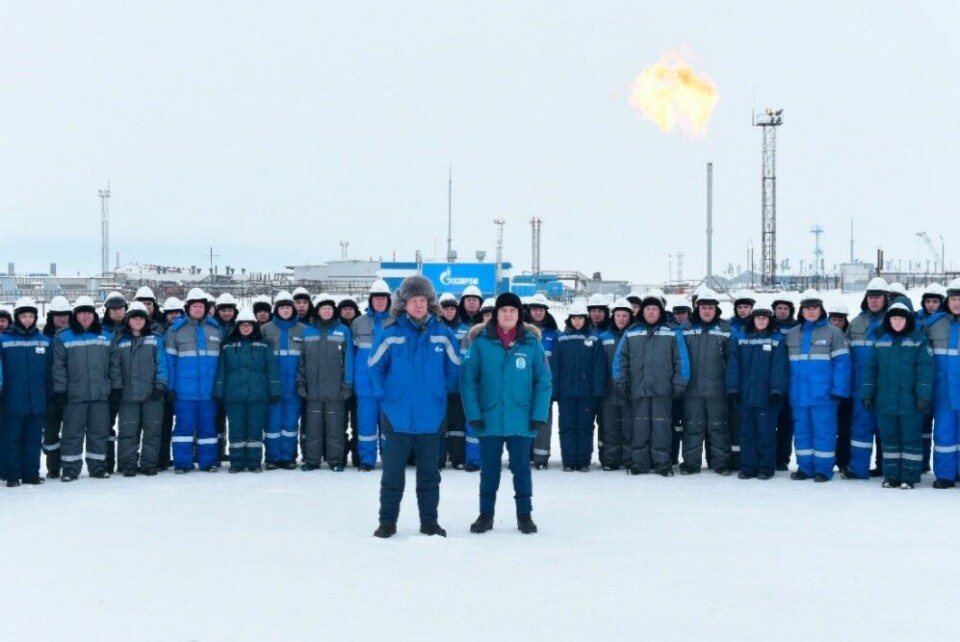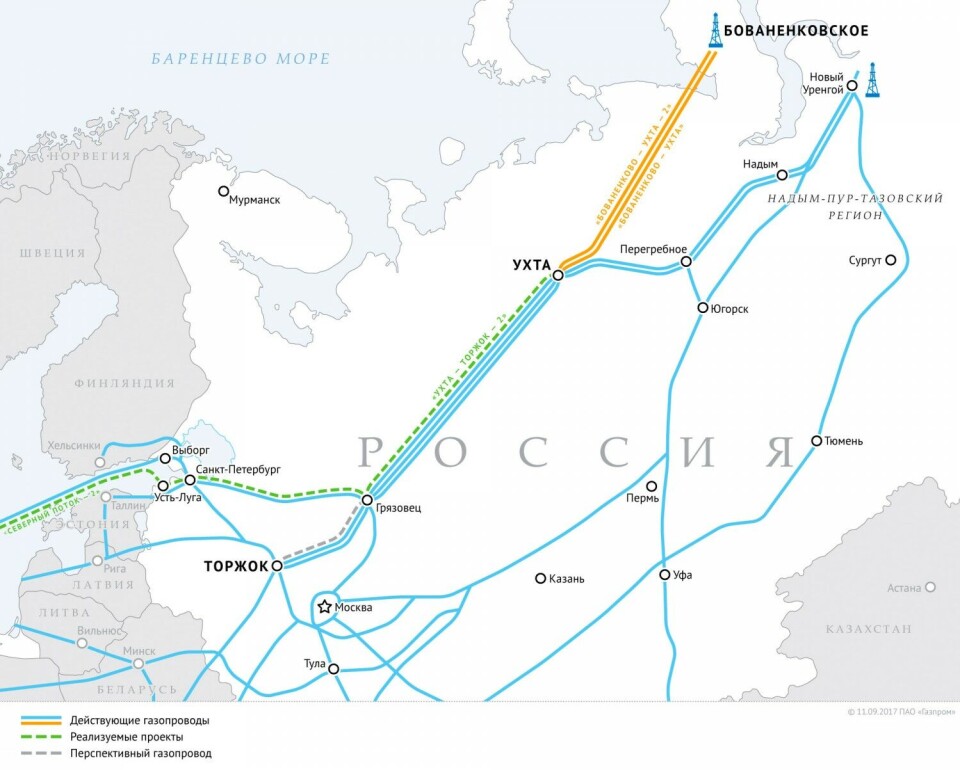
On remote and frail tundra lands of Yamal could come a huge petrochemical plant
Gazprom intends to produce millions of tons of plastics in the Arctic.
p.p1 {margin: 0.0px 0.0px 25.0px 0.0px; line-height: 28.0px; font: 18.0px Arial; color: #262c35; background-color: #ffffff}p.p2 {margin: 0.0px 0.0px 25.0px 0.0px; line-height: 28.0px; font: 18.0px Arial; color: #262c35; background-color: #ffffff; min-height: 21.0px}span.s1 {font-kerning: none}
The powerful state company is planning the construction of a gigantic petrochemical plant in Bovenenkovo, the company hub in the Yamal Peninsula. It is to be able to produce about 3 million tons of plastics products polyethylene and polypropylene per year, several sources in the company confirm to Vedomosti.

If built, the plant will be the northernmost of its kind in the world.
Bovanenkovo is Gazprom’s main Arctic hub for natural gas production. The field holds as much as 4,9 trillion cubic meters of reserves and annually produces up to 115 billion cubic. It is located at 70 degrees North on desolate tundra lands.
Nearby are several more major gas fields, among them the Kharasaveyskoye and Kruzenshternskoye, the first of which are due to come into production in year 2023. Gazprom believes that it in few years will be able to produce as much as 180 billion cubic meters of natural gas in the remote peninsula.
The new petrochemical plant will take advantage of the cheap and plentiful natural gas. It will have a construction cost of up to $15 billion, Vedomosti reports.
Talks with foreign partners are reportedly in progress and Saudi-based SABIC and Azerbaijan SOCAR are among possible investors.
Polyethylene and polypropylene are widely used for labelling and packaging. They are commonly produced with use of natural gas.
The natural gas of Yamal are primarily aimed at exports and Bovanenkovo is connected with two major pipelines that bring the gas towards consumers in the European Union. However, as alternative energy sources are gradually replacing hydrocarbons, Gazprom is forced to look towards other markets and ways to use its resources. The petrochemical plant in Yamal might be a first step in that direction. And it will hardly be the last. Several more projects of the kinds are reportedly on the agenda of the company.
According to Vedomosti, subsidiary company Gazprom Neft is in the process of planning plants for production of both ethanol and polyethylene and polypropylene. Gazprom Neft operates the Arctic oil fields of Prirazlomnoye and Novy Port.
















